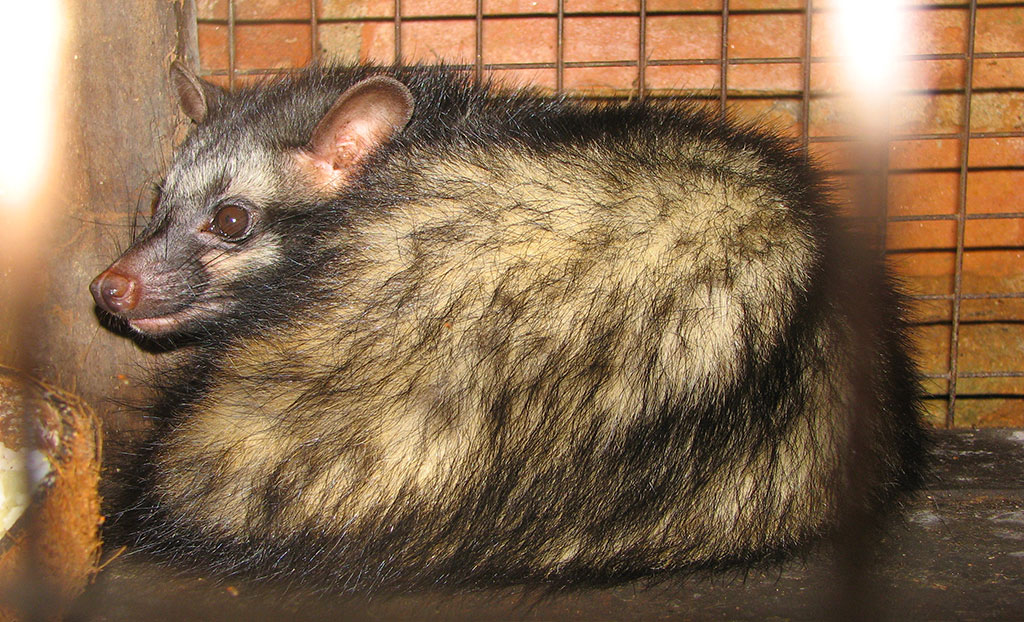This week China’s government confirmed the decision to ban the consumption and trade of all wild animals. The use of wild animals for scientific research, medicine and exhibition will also now be strictly controlled.
The National People’s Congress Standing Committee approved the ban on Monday in a bid to help ‘safeguard public health and ecological security,’ according to China Central Television (CCTV).
Andrew Cunningham of London’s Zoological Society said:
‘Live wild animal markets, such as the huge wet markets in China…are ideal places for zoonotic virus emergence to occur’
A number of scientists agree that the coronavirus epidemic was caused by the consumption of a host animal. Although there are various theories, no specific animal has been identified yet.
‘There has been a growing concern among people over the consumption of wild animals and the hidden dangers it brings to public health security since the novel coronavirus disease (COVID-19) outbreak,’
Asian palm civet in a cage. Image credit: Wikimedia Commons
Despite a lack of scientific evidence, it is still a widely believed within China that consuming wild animal products such as rhino horn, tiger and lion bones, pangolins and civets can cure diseases or improve sexual function.
According to Eye Witness News:
‘There already are laws in place against the wildlife trade, but conservationists say they are full of loopholes regarding many species, and that enforcement is episodic or just plain lax.’
Chinese authorities initially suspended wild animal trade in January in a temporary attempt to help stop the spread of the virus. This move was welcomed by conservation groups like The Endangered Wildlife Trust (EWT) and World Wildlife Fund (WWF). The complete ban of trade and consumption of exotic animal is expected to be a major victory for wildlife.

